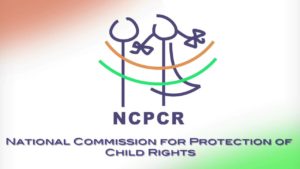NEW DELHI, Jan 8: After the central government castigating Meghalaya for law vaccination rate, the National Commission for Protection of Child Rights (NCPCR) has now asked the state to increase the COVID-19 inoculation drive for children which, according to the

commission, is “very low” in the state.
The state has not made enough effort to provide vaccination to the children who are most vulnerable to the disease, the NCPCR said.
This has put their lives into huge risk, it cautioned.
The NCPCR wrote to the Chief Secretaries of four states — Meghalaya, Nagaland, Manipur and Punjab — to accelerate vaccination of children against COVID-19.
The child rights body wrote only to these four states because it had come across data that suggested that they have vaccinated only a low percentage of children, NCPCR sources said.
Sharing Co-WIN’s data, the commission went on to highlight how in Punjab, only 1.3 per cent of children’s vaccination was carried out. The percentages were 1.9 per cent, 2 per cent and only 0.6 per cent in Meghalaya, Manipur and Nagaland respectively. “It has been observed by the commission that in comparison to other states and national data of vaccination of children, your state has not made enough efforts in providing vaccination to the most vulnerable population of our country which might be putting them at a huge risk of life. In this regard, the commission requests you to take immediate steps towards increasing the number of vaccinations for children in a speedy manner,” the Commission said in a letter to the states.
As per Co-WIN app, 2,18,28,650 registration of the group of 15-17 years has been recorded and 22.7 per cent of children who fall between 15-18 years of age in India have had their first dose. Till date, total vaccination achieved is 2,00,91,496. With COVID cases rising at a massive pace, fuelled by the Omicron variant, the Centre had urged Meghalaya and eight other states/UTs to ramp up COVID-19 testing to contain the spread of the virus.
In the letter, Additional Secretary of Union Health Ministry, Arti Ahuja, said in the absence of sufficient testing it is rather impossible to determine the true level of infection spread in the community.



